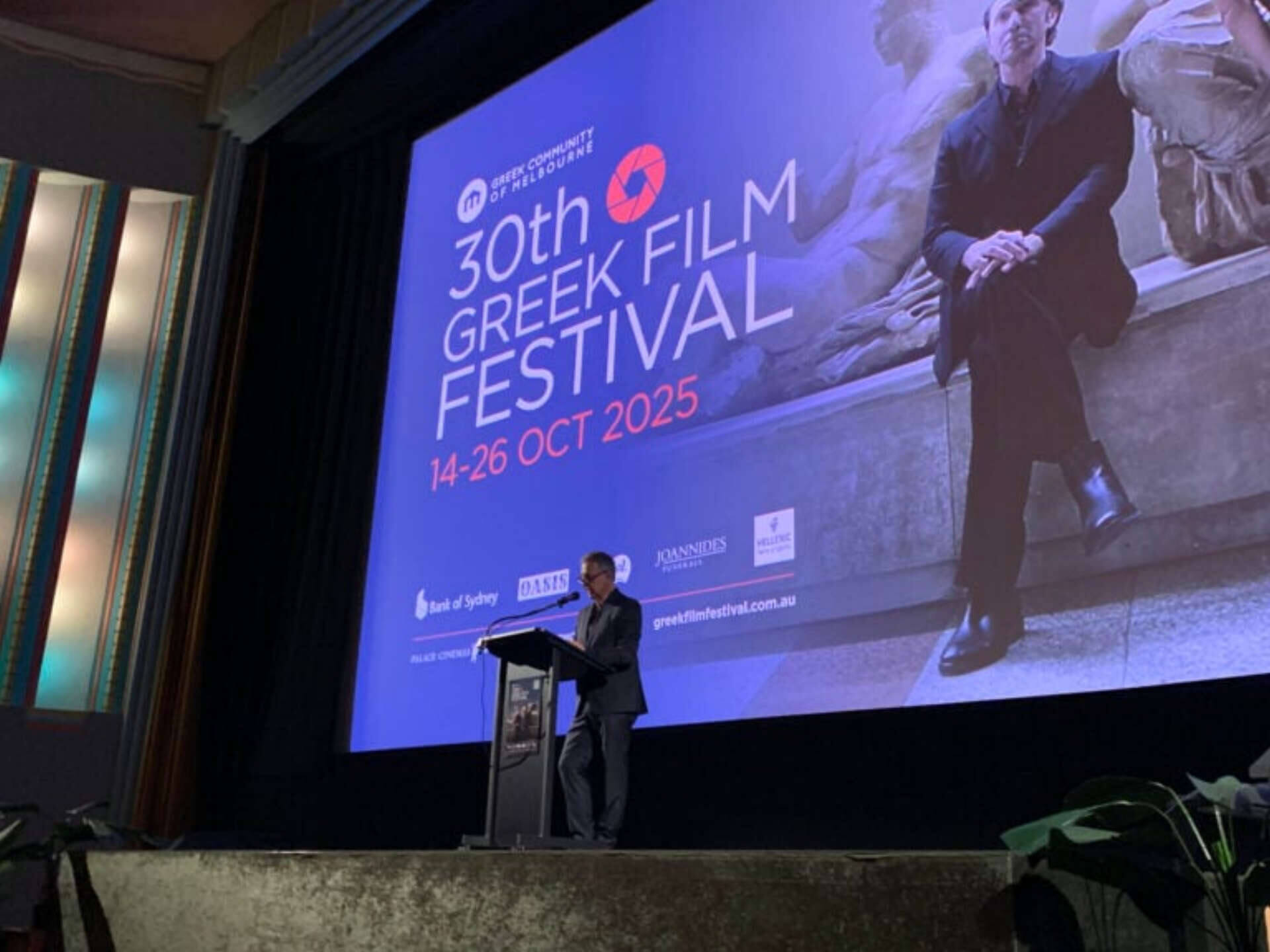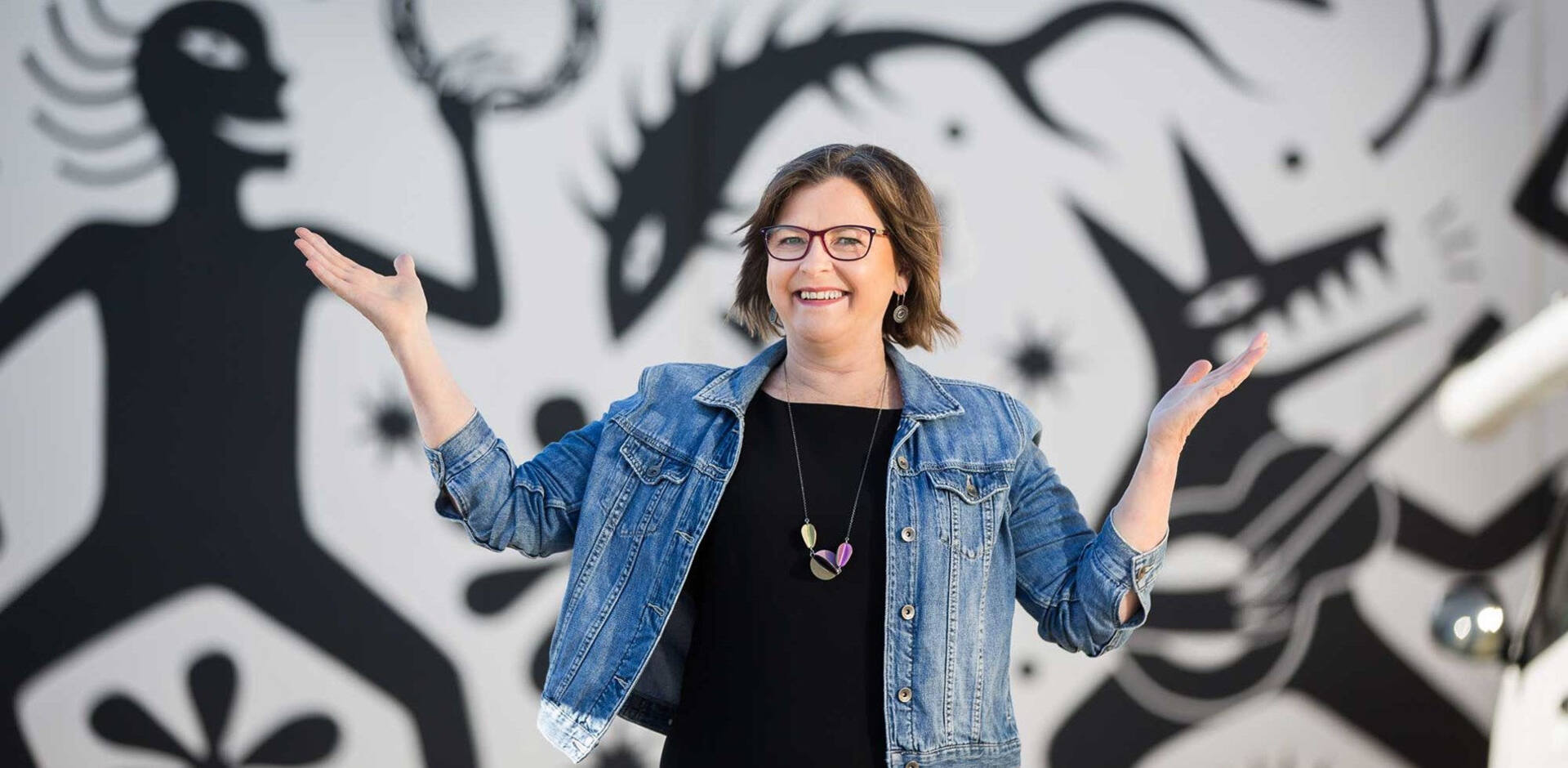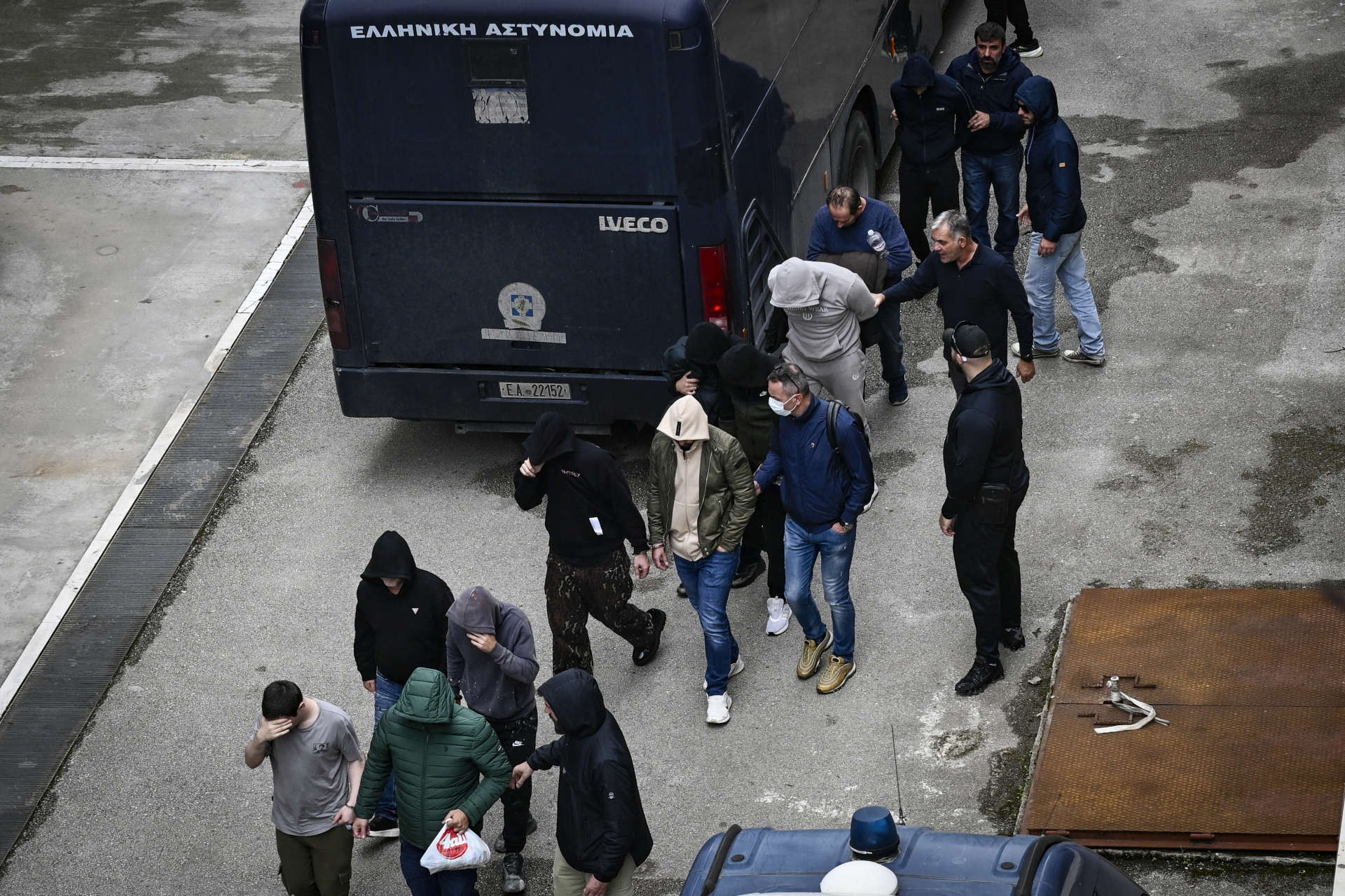The Melbourne Greek Film Festival: Milestones and memories
Source: NEOS KOSMOS
A phone call two Saturdays ago prompted me to put pen to paper and write this piece, which I suppose can be interpreted as my own personal reflection on the life and times of the Melbourne Greek Film Festival.
I was on my way to Palace Cinemas Penny Lane in Moonee Ponds to watch what turned out to be a great film, Fuori, screening as part of the Italian Film Festival. To all those who haven’t seen it, I highly recommend it, as I do the rest of the films programmed as part of that festival.
The call was from an old friend of mine, former journalist and self-confessed movie buff, Babis Stavropoulos. He was one of the individuals who played an instrumental role in the promotion of the inaugural film festival held by the Greek Orthodox Community of Melbourne and Victoria (GOCMV) in conjunction with the Antipodes Festival in 1993.
“Theodore, good to see that the Community is acknowledging its history by recognising and honouring the 30th anniversary of the Greek Film Festival, which has become an institution in our community’s life. I’m happy that I too might have had a small role to play in ensuring that that would be the case.”
“You sure did, Babis,” was my immediate response. “You and many others who were part of the scene from day one. I’ve already bought my ticket and am looking forward to heading down to the Astor on Tuesday to celebrate the occasion. I’ve been to 28 out of the last 29 opening night festivals. The only one I missed was back in 2001 due to a family holiday overseas, and I don’t intend to miss this one.”

So I did attend, and I thoroughly enjoyed the occasion. Not necessarily because of the film I viewed, but because of the atmosphere and the cultural significance of the event, which has endured and thrived despite many ups and downs over the years.
When it comes to retrospectives, it’s important to consider the events and experiences that have transpired along the way, and most importantly, the lessons learned. This reflection helps improve the quality of the Greek Film Festival as it progresses into the future, managed and attended by new generations of Greek-Australians, Philhellenes, and filmgoers.
So, let me take a brief stroll down memory lane and recall events and occasions as I remember them.
How many Greek Film Festivals exactly?
One important matter for clarification is why we are celebrating the 30th anniversary of the Greek Film Festival some 32 years after it was established. Due to COVID and the associated restrictions in Victoria, events were not held in 2020 or 2021.

Humble origins in the Greek Community
1993 was not the best of times for the GOCMV. The organisation was experiencing financial difficulties and facing imminent bankruptcy. Despite this, it continued its work within the Greek community and invested heavily and enthusiastically in the Antipodes Festival. This support extended beyond financial means, encouraging input from a large group of young people eager to make a difference in the organisation’s social and cultural life.
Initially, the Greek Film Festival ran on a shoestring budget and took place in April 1993 at the State Film Theatre, located at Treasury Place in Melbourne’s CBD. The opening film was The Flea by Dimitris Spyrou, screened to a full audience of approximately 150 people.
According to Costas Markos (yes, we are related), over 2,000 people attended the inaugural event in 1993, which ran over ten days and included 24 film screenings. There was a dynamic vibe and plenty of enthusiasm to continue the festival the following year.

Credit must go to the Greek Film Festival’s first subcommittee : Eleni Bertes, Kostas Karamarkos, and Costas Markos, who worked tirelessly to ensure its success. Public radio stations 3ZZZ and 3CR were also big supporters of this bold new event. Neos Kosmos and particularly Babis Stavropoulos, was fully behind the festival and heavily promoted it in every possible way.
These efforts were mirrored in Sydney, where Manolis Plantzios was a key promoter of the sister event, working closely with his Melbourne counterparts.
1994 and the initial years
The second Greek Film Festival in 1994 again took place at the State Film Theatre, with the opening movie Byron by Nikos Koundouros. That year, some films were also screened at the Lumiere Theatre on Lonsdale Street in the CBD.
Up until 2000, the State Film Theatre remained the festival’s home, with screenings typically held in March or April each year.
In 1995, the event welcomed its first international guest, director Katerina Evangelatou, for her film Jaguar.

The move to Cinema Como
In 2001, the Greek Film Festival joined forces with Palace Cinemas, securing a new venue at Cinema Como in South Yarra, a partnership that continues today.
A press release from March 2001 read:
The Greek Film Festival moves to Cinema Como
“The Antipodes Festival and Palace Cinemas take pleasure in announcing the 9th Greek Film Festival will be held at Cinema Como from April 19 to 29. The Greek Film Festival is a popular and integral event of the Antipodes Festival, and this year’s program has been expanded to include twelve contemporary feature films, showcasing contemporary Greek cinema.”
I still recall discussions with Costas Markos, Eleni Bertes, and Kim Petalas, then National Programming Manager at Palace Cinemas, who proposed the move to the Como. Kim had attended the opening of the 2000 festival at Treasury Place, liked what he saw, and recognised its potential.
Initially, I hesitated, fearing the event might lose its personal and communal feel. However, the others disagreed and ultimately, they were right. Moving to the Como exposed the festival to a larger audience, provided a more accessible venue, and allowed it to build a higher profile.
For people like Costas, Eleni, and Kim, the festival was a labour of love. The hours they devoted were significant, but the success made it worthwhile.
In 2002, the committee decided to shift the festival to the latter part of the year, a tradition that continues. That same year featured a retrospective of classics once screened at the State Film Theatre, including The Flea, Evdokia, From the Snow, It’s a Long Road, Rembetiko, and End of an Era.

The 13th Greek Film Festival
The 13th Greek Film Festival, held in 2005, proved to be a turning point in the event’s history. The press release that year announced:
“The 13th Greek Film Festival celebrates Greek cinema by presenting some of the finest films produced over the last 12 months, along with a retrospective tribute to legendary director Pantelis Voulgaris and the return of classics America America by Elia Kazan and The Counterfeit Coin by Giorgos Tzavellas.”
The opening night film, Brides by Pantelis Voulgaris (executive produced by Martin Scorsese), sold over one million tickets in Greece and won ten awards at the Thessaloniki International Film Festival, including Best Feature Film.
America America, directed by Elia Kazan, whose credits include A Streetcar Named Desire, On the Waterfront, and East of Eden, was screened as a special event.
The closing night film was The Counterfeit Sovereign by Giorgos Tzavellas, considered by many to be one of the greatest Greek films ever made.
Brides was such a success that Palace Cinemas acquired it for general release.
One of my fondest memories from that year is the sheer number of volunteers who made it possible. Their collective enthusiasm ensured the festival’s success. (And may I again apologise to Mary R. for dropping her vintage Singer sewing machine, which she had generously loaned for an exhibition inspired by Brides!)

2011 and beyond
Beyond 2005, I jump to 2010 to recall another highlight, the opening with Pantelis Voulgaris’s Psyhi Vathia (Heart and Soul), a box-office success that also featured actress Victoria Haralabidou, who had starred in both Heart and Soul and Brides.
In 2015, Palace Cinemas announced that Cinema Como would no longer host opening nights, ushering in a new era at the historic Astor Theatre, a venue deeply tied to Greek cinema since the 1950s.
While I personally preferred the opening nights at the Como, I must admit the Astor holds its own charm.
COVID-19 forced the festival’s cancellation in 2020 and 2021, but it returned triumphantly in 2022 with the acclaimed My Name is Eftyhia by Angelos Frantzis, based on the life of lyricist Eftyhia Papagiannopoulou.
And in 2025, we celebrate its 30th anniversary.
I feel privileged to have been part of such a significant aspect of the Greek community’s cultural history. I pay tribute to all the volunteers who have supported the festival through the decades, the true backbone of the event.
The Greek Film Festival has provided a path for many to become active citizens not only within the Antipodes Festival and GOCMV but in the wider Australian community.
As long as the event maintains its connection, relevance, and appeal to its audience, it will continue to grow and prosper. The Greek community needs the Greek Film Festival, and the festival needs the community.
And finally, see you at the movies!

The original article: belongs to NEOS KOSMOS .





